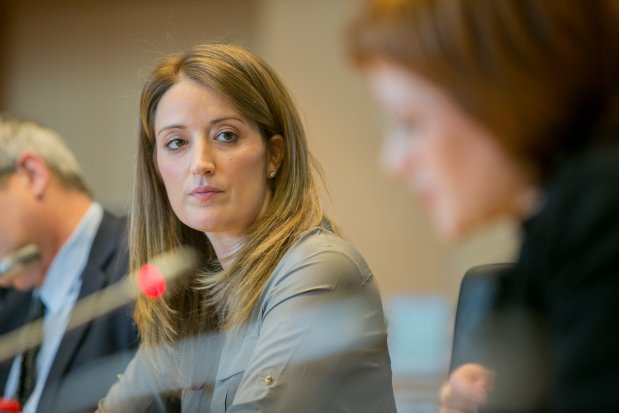Maltese MEP Roberta Metsola has been tasked by the European Parliament to lead negotiations on a new law to manage the EU’s external borders.
In a tweet, Metsola said that her priorities will be “ensuring thousands more officials to handle migratory pressure, strengthening the agency & boosting security at the EU borders – while protecting fundamental rights,” adding “we must get this right.”
Metsola – who will take up her role as the official European Parliament rapporteur – is expected to embark on a new law which will revolutionise the way Europe’s borders are protected, help prevent cross-border crime, strengthen the system for the safe return of irregular migrants who are not eligible for protection in Europe, and boost the European Border and Coast Guard.
“It is a mammoth responsibility and such an honour, not just for me personally to have been entrusted with leading this new law, but for all of Malta and Gozo. This report will become a cornerstone of European legislation in the field of migration, asylum, cross-border crime prevention, border control, returns and asylum. We absolutely have to get it right,” Metsola said in a statement.
Metsola, who was elected as the European People’s Party (EPP) Group coordinator on these issues, outlined her priorities for the law saying “one of the main things we want to introduce is for the EU to have a standing force of 10,000 new border and coast guards by 2020.”
This will mean that for the first-time the EU will be able to respond immediately to new “migration crises on our borders” the MEP said, adding that above all “this law will give the EU the tools we need to ensure that we are able to prevent, not only respond to, migration pressures. It is not only about migration but also about preventing cross-border crime and protecting the security of the Union.”
“When we see a build up at borders in third countries, outside the EU, we want to be able to have the opportunity to help countries cope with migration pressures. We have the equipment and the funds to help nations return those people who are not eligible for protection. We want to be able to send our asylum experts and our planes to North Africa other third countries if they request the EU’s assistance in returning irregular migrants – so far the EU has been legally unable to do so,” she added.
Metsola emphasised that “we also want to set up antenna offices of the European Border and Coast Guard around the EU, ensuring a physical presence in places other than Warsaw, which is the current seat of the Agency. This is particularly important for countries in the Mediterranean.”
She added that “our overarching priorities are to save people’s lives at sea, to safeguard the integrity of our external border, the safety of our citizens and ensure everyone’s fundamental rights are protected. This is essential. I am determined to reach a conclusion before the end of this legislature and before next summer. It will mean working round the clock but we can get there.”
Roberta Metsola will be meeting stakeholders in Malta and across the EU to get their input into the new law.












